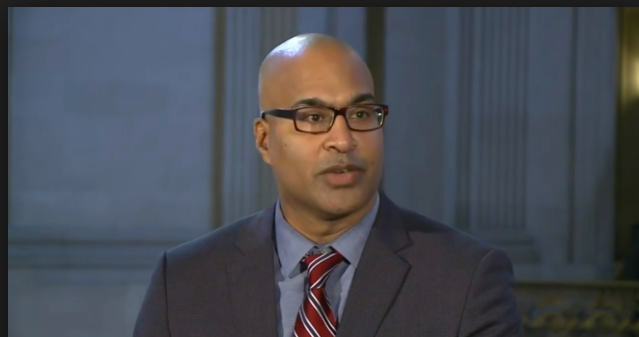
Among the most vulnerable communities in this pandemic is a group that is forcibly held in close quarters, with many members facing existing health problems and limited access to medical care – or even soap for washing hands.
Roughly 2.3 million peopled are in jails and prisons in the United States – and their health is often ignored or overlooked in the news media. In some cases, they are crammed into small quarters without adequate fresh air or decent food.

In fact, in a lot of prisons in the US, soap is a luxury that can only be purchased at a high price at the commissary – and only if that prison has family with enough money to put into their commissary account.
And yet, there is very little talk of how to limit their exposure – perhaps by reducing the prison and jail population.
That’s what San Francisco Public Defender Manohar Raju is urging the sheriff and juvenile probation authorities to do.
In a series of letters to the chief of police, the director of juvenile justice, the sheriff and the local head of Immigration Control and Enforcement, Raju is asking that every possible step be taken to release people from custody, avoid unnecessary arrests, and allow young people to return home.
Police agencies in Washington State are already starting to move aggressively to reduce jail populations– with measures that include reducing the number of arrests and incarcerations for nonviolent crimes.
In his letter to Police Chief Bill Scott, Raju says:
I am asking that you exercise your discretion and instruct all officers under your command to reduce all unnecessary contact with the community by ceasing to cite people for violations of municipal infractions, ceasing citations and arrests for low level misdemeanors that do not pose a public safety risk, and to suspend all additional arrests, unless there is a clear and present danger of imminent physical harm. This should include all misdemeanor offenses and all non-violent felonies.
In his letter to Sheriff Paul Miyamoto, he suggests that many of the current inmates could be safely released:
One measure it seems in your power to take is to begin assessing all sentenced persons for immediate release on electronic monitoring and work release/SWAP, suspending some or all of the policies that make people ineligible for release, like charge-based exclusions or a requirement that 50% of the sentence has been served. Given the public health emergency, I ask that you exercise your powers in this regard as broadly as possible, releasing as many sentenced persons as you can.
In terms of safety for existing prisoners, he asks:
The constant flow of both staff and detainees in and out of the jails – where large numbers of people are housed in close proximity – means that a powerful virus like COVID-19 can take over quickly and easily.
I am therefore requesting that you provide me – and the public – with the specific plans and protocols currently in place to avoid a COVID-19 infection in the jail and protect detainees, advocates from my office, and staff. Such protocols should go beyond existing protocols for responding to the common flu and include the screening process for people working in the jail or being booked into a jail facility, the circumstances in which a person must transferred to a hospital for further testing by medical professionals, and what special steps are being taken to protect the safety of vulnerable populations. Additionally, all bathrooms under your control – including all bathrooms in all County Jails and at 850 Bryant Street – should be fully stocked at all times with soap and paper towels.
Raju and Alameda County Public Defender Brendon Woods told David Jennings, acting field director of ICE, they have heard reports that ICE facilities lack soap, disinfectant supplies, and hand sanitizer. The two urged ICE to release all vulnerable people immediately into community monitoring.
Outbreaks of the highly infectious virus in the county jail system not only imperils vulnerable inmates; the disease could spread to jail staff, who are often in close contact with inmates. And all of the inmates in the SF jail system are going to be released at some point and can bring exposure into the broader community.
Local and national health authorities say one of the most important ways to limit the spread of the novel coronavirus is social distancing – that’s why gyms and bars have been ordered to limit the number of people using the facilities at any one time so there can be space between them.
Reducing the inmate population at the county jail would allow the sheriff to spread the remaining inmates out in single cells and have smaller shifts for meals.
And reducing the number of arrests for nonviolent offenses would not only lower the jail population but would keep police officers from close contact with people who don’t need to be in custody.
As of press time, neither Scott nor Miyamoto had responded.
UPDATE: Miyamoto’s staff shared with me his letter in response to Raju. The sheriff said that his office works with the Department of Public Health and that he is following those guidelines. He said that there are currently no confirmed cases of coronavirus it the county jails. In response to the Raju’s suggestion about releasing more inmates, he said that the office is “constantly monitoring” the situation and that “we regularly review every sentenced person in our jail to determine their eligibility for release.”
He did not say that he plans any changes in releasing inmates.


